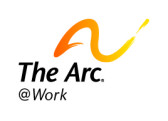By Robin Shaffert, Senior Executive Officer, Individual & Family Support, The Arc
The story, “Four Bodies in Elmhurst: Why would an 82yearold man kill his son, his daughter, his wife and himself?” appears in today’s New York Times magazine section. Jeff Himmelman reports on the heartbreaking murder of two adults with intellectual and developmental disabilities (I/DD) and their mother, by the father who also committed suicide.
On Tuesday, the story appeared on the Times’s website, and The Arc shared it on social media. Since then, I have been reading the comments from readers of the Times and The Arc’s Facebook page. I find myself deeply troubled – yet not altogether surprised – that the most common sentiment is that we shouldn’t judge the father.
We must judge the father. The father committed three murders. He ended the lives of two of his children and his wife. If we do not condemn that action, we do not value their humanity. Our core values are clear: The Arc believes that people with intellectual and developmental disabilities are entitled to the respect, dignity, equality, safety, and security accorded to other members of society, and are equal before the law. When people with I/DD are murdered, we cannot suggest that their murder is understandable or justifiable.
After we condemn these murders, we can look at what we can learn from them. In Mr. Himmelman’s portrayal of the Stack family, we can begin to see where we as a society fall short in supporting families that include a person with I/DD. But limited, inadequate, or the complete absence of services and supports can never justify murder. This fact, however, doesn’t absolve us of our responsibility to do a better job supporting families that include members with I/DD. This support is critical throughout the lifespan but it is especially important as adults with I/DD transition from their family homes to other living situations in our communities.
Sometimes we hear that parents are driven to these horrific acts because there are no decent places for their children to live and receive the supports and services they need when they leave the family home. That wasn’t the case for the Stack family. The son and daughter were both in good living situations. These situations may not have been perfect, and Mr. Stack, the story tells us, was vigilant in working with the providers to make sure his son and daughter got the supports he felt they needed.
The Stacks were able to do what many families struggle with. They overcame barriers and created a future plan for their son and daughter. They found housing options and daily activities – and they figured out how to finance them. Yet, for some unknowable reason, Mr. Stack decided to take the lives of his wife, son, and daughter.
I find myself asking whether things would have been different had Mr. Stack received help in addressing the guilt he felt about the possibility that his exposure to toxins during the Korean War caused or contributed to their disabilities, or if his family had received more support during the decades that he and his wife cared so lovingly for their son or daughter. We’ll never know.
I lead The Arc’s Center for Future Planning. My colleagues and I recognize the complexity and the enormity of the issue we are addressing. There are 600,000-700,000 adults with I/DD living with caregivers 60 and over that have no plan in place for what is going to happen when those caregivers can no longer provide support. To create a good plan, the individual with I/DD and his or her family must take into account virtually every aspect of the person’s life. This story teaches us that as important as it is to figure out benefits and housing, it is at least as important to ensure that families receive the emotional support they need to make these difficult transitions. Many chapters of The Arc and other service providers are working to provide that support. Yet I fear for the families that aren’t connected to get that help, and I know that the supports that are available in many areas are inadequate.
Like many of you, when I finished the story, I asked myself – what can I do to help prevent tragedies like this from happening again? As we move forward, we should remember the Stack family by striving to support families in a way that values the humanity of all of their members. We can do this in small ways like checking in on families that may be isolated. We can also work together to advocate at the local, state, and federal level for the resources to enable us to support all of our families.













